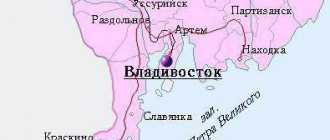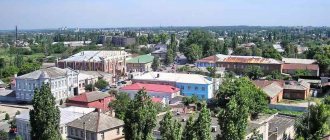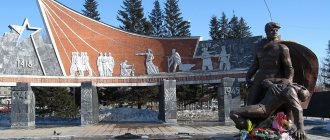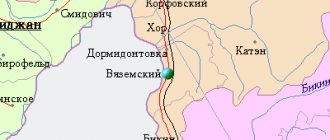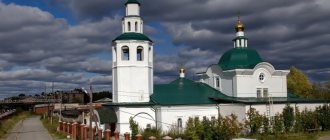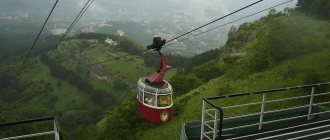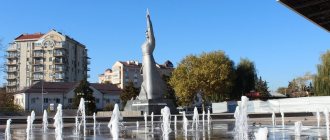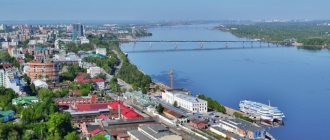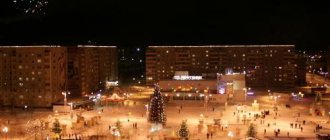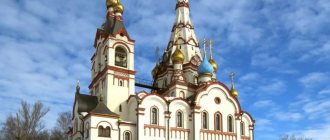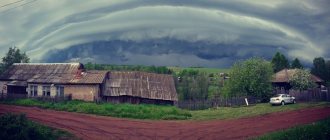Story
Founded by the Cossacks as the village of Grafskaya (founded in 1859) in honor of Count N.N. Muravyov-Amursky.
Before the revolution, the 1st Siberian Pontoon Battalion was stationed in the city.
From 1897 to 1972 the city was called Iman
(after the name of the river on which it was located, now Bolshaya Ussurka). City status since 1917. On May 22, 1962 it received the status of a city of regional subordination. Renamed as a result of the campaign to eliminate Chinese names in the Far East, which was a consequence of the Soviet-Chinese armed conflict on Damansky Island.
The 15th Separate Brigade of Border Troops Patrol Ships (15 OBSKR) was based in the city.
Attractions
- Memorial complexes to border guards who died defending the state border of the USSR.
- Memorial complex to the border guard heroes who fell on March 2, 1969 on Damansky Island[23].
- Ethnographic complex “Sources of Dalnerechye”, including a chapel on the banks of the Ussuri River.
- The first military burial 1859-1918
- “Memorial of Glory” and “Museum of Defensive Structures of the 109th Fortified Area”.
- Monument "Motto - Oath".
| Stele at the entrance to the city | Train Station | House of Culture "Vostok" | Children's park | St. Lenin | Mass grave of Heroes of Damansky |
Economy
Timber processing
Various timber processing plants and enterprises are located on the territory of Dalnerechensk.
The largest enterprise is ZAO LesExport (since 2000), with about 500 employees at the moment. It is engaged in wood processing, the production of parquet, veneer, logging and also in the area of forest planting. They sell products through representative offices in different cities of Russia, under the AmberWood brand.
Connection
Cellular and wired communications.
Trade
The city has a developed system of supermarkets for electronics and household appliances, among which the most developed network is “DNS”, “Domotekhnika” and others.
Pipeline
Primorskaya branch of the ESPO-II oil pipeline: 943.8 kilometers of main oil pipeline, five oil pumping stations, two of which are equipped with tank farms with a total volume of 220 cubic meters. m.
Financial services
Representative offices and offices of the largest financial and insurance organizations are located in Dalnerechensk - Rosgosstrakh, Sberbank, Oriental Express Bank and Asian-Pacific Bank, Far Eastern Bank Sovcombank, etc.
Monuments of the prehistoric period
The earliest monument of the prehistoric period of the history of the Primorsky Territory is the cave of the Geographical Society, located in the rock of the Catherine Massif, which historians date back to the Early Paleolithic, its age is 32 thousand years. It is located in the Partizansky district near the village of Ekaterinovka.
The ancient history of the Primorsky Territory is confirmed by finds made by archaeologists. The monuments of the Osinovskaya culture, located near the village of Osinovka, Mikhailovsky district, and the Ustinovskaya culture, located near the village of Ustinovka, Kavalerovsky district, date back to this time. They were opened in 1953.
The Neolithic includes monuments of several cultures, such as Zaysanovskaya, Boismanskaya, Imanskaya, Vetkinskaya, Rudninskaya. They are represented by finds of pottery and textiles. The most significant ones are located in the Devil’s Gate cave, in the burial grounds on the shore of Boysman Bay. Representatives of the Zaisan culture, who inhabited the southern regions of the Primorsky Territory, were engaged in agriculture.
The Bronze Age in the history of the Primorsky Territory is characterized by the appearance of fortified settlements, which speaks of armed conflicts. Monuments of Margaritovskaya culture are located in the eastern region of the region, in the bays of the Sailor-Fisherman, Olga, Preobrazheniya, and Evstafiya.
mass media
The following periodicals are published in the city: “Dalnerechye”, “Shock Front”, “Narodnaya Vest”.
Radio stations:
In Dalnerechensk, 2 radio stations of the FM range and 1 VHF range are broadcast:
- 69.32 VHF - “Radio Russia”
- 103.3 FM - “Vladivostok FM”
- 103.9 FM - “Avtoradio-Dalnerechensk”
Three FM radio stations also plan to start broadcasting:
- 95.8 FM – Radio Russia
- 101.8 FM - “Love Radio”
- 104.5 FM - “Primorskaya Wave”
Radio stations broadcast from the Dalnerechenskaya RTPS, which is located on Mount Znamenskaya. Dalnerechensk radio stations are received in the Dalnerechensky and Pozharsky districts.
Climate
| Climate of Dalnerechensk (norm 1981–2010) | |||||||||||||
| Index | Jan. | Feb. | March | Apr. | May | June | July | Aug. | Sep. | Oct. | Nov. | Dec. | Year |
| Absolute maximum | 2,7 | 5,8 | 17,6 | 26,6 | 32,9 | 34,9 | 34,6 | 36,8 | 29,7 | 26,5 | 16,4 | 8,8 | 36,8 |
| Average temperature, °C | −18,8 | −14,1 | −5,1 | 5,9 | 12,9 | 18,0 | 21,1 | 20,6 | 14,1 | 5,8 | −5,7 | −15,8 | 3,2 |
| Absolute minimum, °C | −42 | −36,8 | −31,8 | −15,1 | −3,7 | 2,1 | 5,3 | 4,4 | −5 | −16,2 | −30,9 | −38,2 | −42 |
| Precipitation rate | 12 | 11 | 25 | 40 | 66 | 77 | 117 | 120 | 71 | 52 | 27 | 19 | 637 |
| Source: Tav °С and precipitation[21], Tmin °С and Tmax °С[22] | |||||||||||||
Disasters and catastrophes
- In 2016 (September), Typhoon Lionrok raged in the Primorsky Territory, which caused great damage to the city and region, flooding vast areas with water coming out of the rivers (due to prolonged rainfall). During the period of extreme water rise, the Ministry of Emergency Situations actively strengthened dams, filled up embankments, set up water crossings and tent camps, and organized a telephone hotline. Many families lost their homes and crops, some houses were completely destroyed or were recognized by the visiting commission as beyond restoration. The affected citizens were provided with medical and material assistance by the city and state structures. The consequences of the typhoon were eliminated before the onset of winter. In the private sector, wells and water pumps were sanitized.
An excerpt characterizing Dalnerechensk
“Oh, I almost knocked off our master’s hat,” the red-faced joker laughed at Pierre, showing his teeth. “Eh, clumsy,” he added reproachfully to the cannonball that hit the wheel and the man’s leg. - Come on, you foxes! - another laughed at the bending militiamen entering the battery behind the wounded man. - Isn’t the porridge tasty? Oh, the crows, they slaughtered! - they shouted at the militia, who hesitated in front of the soldier with a severed leg. “That’s something, little guy,” they mimicked the men. – They don’t like passion. Pierre noticed how after each cannonball that hit, after each loss, the general revival flared up more and more. As if from an approaching thundercloud, more and more often, lighter and brighter, lightning of a hidden, flaring fire flashed on the faces of all these people (as if in rebuff to what was happening). Pierre did not look forward to the battlefield and was not interested in knowing what was happening there: he was completely absorbed in the contemplation of this increasingly flaring fire, which in the same way (he felt) was flaring up in his soul. At ten o'clock the infantry soldiers who were in front of the battery in the bushes and along the Kamenka River retreated. From the battery it was visible how they ran back past it, carrying the wounded on their guns. Some general with his retinue entered the mound and, after talking with the colonel, looked angrily at Pierre, went down again, ordering the infantry cover stationed behind the battery to lie down so as to be less exposed to shots. Following this, a drum and command shouts were heard in the ranks of the infantry, to the right of the battery, and from the battery it was visible how the ranks of the infantry moved forward. Pierre looked through the shaft. One face in particular caught his eye. It was an officer who, with a pale young face, walked backwards, carrying a lowered sword, and looked around uneasily. The rows of infantry soldiers disappeared into the smoke, and their prolonged screams and frequent gunfire could be heard. A few minutes later, crowds of wounded and stretchers passed from there. Shells began to hit the battery even more often. Several people lay uncleaned. The soldiers moved more busily and more animatedly around the guns. Nobody paid attention to Pierre anymore. Once or twice they shouted at him angrily for being on the road. The senior officer, with a frowning face, moved with large, fast steps from one gun to another. The young officer, flushed even more, commanded the soldiers even more diligently. The soldiers fired, turned, loaded, and did their job with tense panache. They bounced as they walked, as if on springs. A thundercloud had moved in, and the fire that Pierre had been watching burned brightly in all their faces. He stood next to the senior officer. The young officer ran up to the elder officer, with his hand on his shako. - I have the honor to report, Mr. Colonel, there are only eight charges, would you order to continue firing? - he asked. - Buckshot! - Without answering, the senior officer shouted, looking through the rampart. Suddenly something happened; The officer gasped and, curling up, sat down on the ground, like a shot bird in flight. Everything became strange, unclear and cloudy in Pierre’s eyes. One after another, the cannonballs whistled and hit the parapet, the soldiers, and the cannons. Pierre, who had not heard these sounds before, now only heard these sounds alone. To the side of the battery, on the right, the soldiers were running, shouting “Hurray,” not forward, but backward, as it seemed to Pierre. The cannonball hit the very edge of the shaft in front of which Pierre stood, sprinkled earth, and a black ball flashed in his eyes, and at the same instant it smacked into something. The militia who had entered the battery ran back. - All with buckshot! - the officer shouted. The non-commissioned officer ran up to the senior officer and in a frightened whisper (as a butler reports to his owner at dinner that there is no more wine required) said that there were no more charges. - Robbers, what are they doing! - the officer shouted, turning to Pierre. The senior officer's face was red and sweaty, his frowning eyes sparkling. – Run to the reserves, bring the boxes! - he shouted, angrily looking around Pierre and turning to his soldier. “I’ll go,” said Pierre. The officer, without answering him, walked in the other direction with long steps. – Don’t shoot... Wait! - he shouted. The soldier, who was ordered to go for the charges, collided with Pierre. “Eh, master, there’s no place for you here,” he said and ran downstairs. Pierre ran after the soldier, going around the place where the young officer was sitting. One, another, a third cannonball flew over him, hitting in front, from the sides, from behind. Pierre ran downstairs. "Where am I going?" - he suddenly remembered, already running up to the green boxes. He stopped, undecided whether to go back or forward. Suddenly a terrible shock threw him back to the ground. At the same instant, the brilliance of a large fire illuminated him, and at the same instant a deafening thunder, crackling and whistling sound rang in his ears. Pierre, having woken up, was sitting on his backside, leaning his hands on the ground; the box he was near was not there; only green burnt boards and rags were lying on the scorched grass, and the horse, shaking its shaft with fragments, galloped away from him, and the other, like Pierre himself, lay on the ground and squealed shrilly, protractedly. Pierre, unconscious from fear, jumped up and ran back to the battery, as the only refuge from all the horrors that surrounded him. While Pierre was entering the trench, he noticed that no shots were heard at the battery, but some people were doing something there. Pierre did not have time to understand what kind of people they were. He saw the senior colonel lying with his back to him on the rampart, as if examining something below, and he saw one soldier he noticed, who, breaking forward from the people holding his hand, shouted: “Brothers!” – and saw something else strange. But he had not yet had time to realize that the colonel had been killed, that the one shouting “brothers!” There was a prisoner who, in front of his eyes, was bayoneted in the back by another soldier. As soon as he ran into the trench, a thin, yellow, sweaty-faced man in a blue uniform, with a sword in his hand, ran at him, shouting something. Pierre, instinctively defending himself from the push, since they, without seeing, ran away from each other, put out his hands and grabbed this man (it was a French officer) with one hand by the shoulder, with the other by the proud. The officer, releasing his sword, grabbed Pierre by the collar. For several seconds, they both looked with frightened eyes at faces alien to each other, and both were at a loss about what they had done and what they should do. “Am I taken prisoner or is he taken prisoner by me? - thought each of them. But, obviously, the French officer was more inclined to think that he had been taken prisoner, because Pierre’s strong hand, driven by involuntary fear, squeezed his throat tighter and tighter. The Frenchman wanted to say something, when suddenly a cannonball whistled low and terribly above their heads, and it seemed to Pierre that the French officer’s head had been torn off: he bent it so quickly. Pierre also bowed his head and let go of his hands. Without thinking any more about who took whom prisoner, the Frenchman ran back to the battery, and Pierre went downhill, stumbling over the dead and wounded, who seemed to him to be catching his legs. But before he had time to go down, dense crowds of fleeing Russian soldiers appeared towards him, who, falling, stumbling and screaming, ran joyfully and violently towards the battery. (This was the attack that Ermolov attributed to himself, saying that only his courage and happiness could have accomplished this feat, and the attack in which he allegedly threw the St. George crosses that were in his pocket onto the mound.) The French who occupied battery, let's run. Our troops, shouting “Hurray,” drove the French so far behind the battery that it was difficult to stop them. Prisoners were taken from the battery, including a wounded French general, who was surrounded by officers. Crowds of wounded, familiar and unfamiliar to Pierre, Russians and French, with faces disfigured by suffering, walked, crawled and rushed from the battery on stretchers. Pierre entered the mound, where he spent more than an hour, and from the family circle that accepted him, he did not find anyone. There were many dead here, unknown to him. But he recognized some. The young officer sat, still curled up, at the edge of the shaft, in a pool of blood. The red-faced soldier was still twitching, but they did not remove him. Pierre ran downstairs. “No, now they will leave it, now they will be horrified by what they did!” - thought Pierre, aimlessly following the crowds of stretchers moving from the battlefield. But the sun, obscured by smoke, still stood high, and in front, and especially to the left of Semyonovsky, something was boiling in the smoke, and the roar of shots, shooting and cannonade not only did not weaken, but intensified to the point of despair, like a man who, straining himself, screams with all his might. The main action of the Battle of Borodino took place in the space of a thousand fathoms between Borodin and Bagration’s flushes. (Outside this space, on the one hand, the Russians made a demonstration by Uvarov's cavalry in mid-day; on the other hand, behind Utitsa, there was a clash between Poniatowski and Tuchkov; but these were two separate and weak actions in comparison with what happened in the middle of the battlefield. ) On the field between Borodin and the flushes, near the forest, in an open area visible from both sides, the main action of the battle took place, in the most simple, ingenuous way.
Foundation of Vladivostok
The main central settlement was the city of Nikolaevsk, which is currently part of the Khabarovsk Territory. The Pacific Fleet was based in this area. In 1859, the Governor-General of Eastern Siberia N. Muravyov-Amursky inspected the coastal area on his ship in order to select a convenient bay for the construction of a port. He found it - this is the protected Golden Horn Bay. Exactly a year later, a military post was established here, and subsequently the city of Vladivostok was built. This year he will turn 158 years old.
Age of Iron
With the advent of the Iron Age (800 BC), settlements appeared. Their inhabitants are representatives of the Yankov culture. These are the first ancient people in the history of the Primorsky Territory who were engaged in growing crops. They planted millet and barley, made pottery and metal tools, and were engaged in fishing and gathering.
Almost at the same time, representatives of another culture, the Krounov culture, lived in the West of Primorye. These are the Woju tribes.
